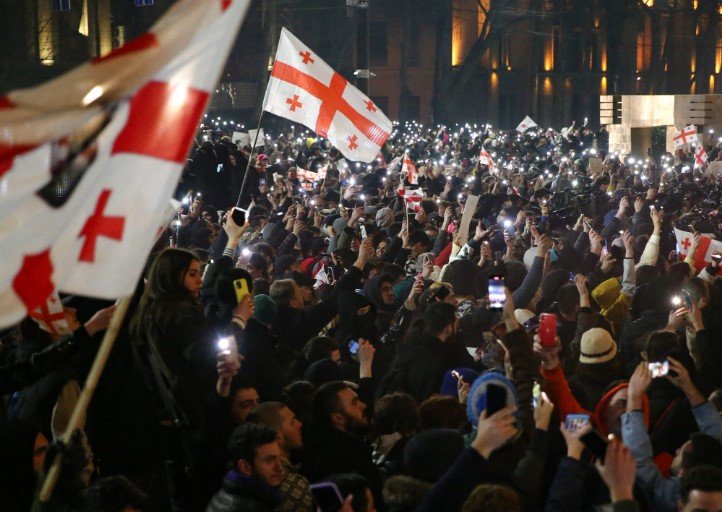The ruling Georgian Dream (GD) party has announced its intention to amend the Constitution of Georgia to reflect the Orthodox Church as a fundamental pillar of the state’s identity if it wins the upcoming elections. This proposal, made by GD Chairman Bidzina Ivanishvili, aims to strengthen the constitutional status of Orthodoxy and emphasize its historical and contemporary significance in Georgia. The move has sparked a heated debate, with supporters praising the initiative and critics warning of potential implications for religious freedom and national unity.
Strengthening Orthodoxy’s Constitutional Status
Bidzina Ivanishvili, during a recent meeting in Guria, declared that the Georgian Dream party would work to amend the Constitution to more accurately reflect the role of the Orthodox Church. He emphasized that the current constitutional recognition of the Church’s special role in Georgia’s history is insufficient. Ivanishvili argued that Orthodoxy should be explicitly recognized as a pillar of the Georgian state’s identity, highlighting its importance in both historical and modern contexts.
The proposed amendments would reinforce the Church’s independence and freedom of faith while underscoring its significance in shaping Georgia’s cultural and moral values. Ivanishvili’s announcement has been met with mixed reactions, with some viewing it as a necessary step to preserve national identity, while others see it as a potential threat to religious pluralism.

Public and Political Reactions
The proposal to enshrine Orthodoxy in the Constitution has elicited strong reactions from various segments of Georgian society. Supporters of the initiative argue that it is a reflection of Georgia’s historical and cultural heritage. They believe that recognizing Orthodoxy as a foundational element of the state will strengthen national unity and preserve traditional values. Proponents also argue that the move is in line with the sentiments of the majority of Georgians, who identify with the Orthodox faith.
However, critics have raised concerns about the potential implications for religious freedom and the separation of church and state. They argue that the proposed amendments could marginalize religious minorities and undermine the principles of a secular state. Human rights organizations have also expressed apprehension, warning that the move could lead to increased discrimination and social division.
Implications for Georgia’s Future
The debate over the proposed constitutional amendments has significant implications for Georgia’s political and social landscape. If Georgian Dream secures a constitutional majority in the upcoming elections, the party will have the mandate to implement these changes. The outcome of this initiative will shape the future direction of Georgia’s governance and its relationship with religious institutions.
The international community is closely monitoring the situation, with some expressing concerns about the potential impact on Georgia’s democratic development and human rights record. The proposed amendments could also affect Georgia’s aspirations for closer integration with the European Union, which emphasizes the importance of religious freedom and human rights.
As the elections approach, the discussion around the role of Orthodoxy in the Constitution will continue to be a focal point of political discourse. The decisions made in the coming months will have lasting consequences for Georgia’s identity, governance, and international standing.
